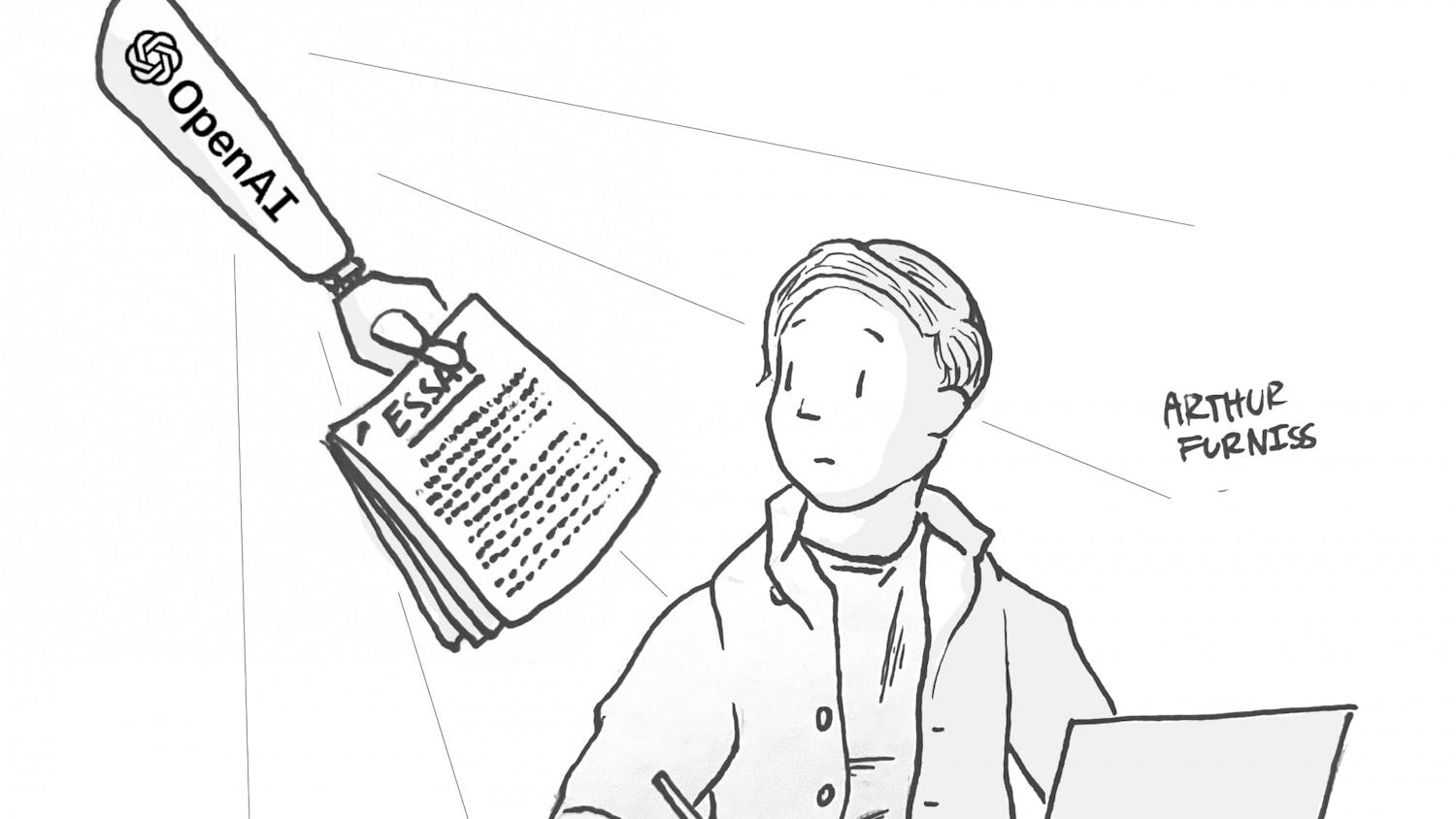This week we examined how faculty, staff and students are navigating the introduction of ChatGPT, an AI chatbot created by OpenAI and released to the public in November. The Campus also editorialized on campus policies surrounding the chatbot, but we’ve also been having conversations about our own internal expectations. Given the nature of our organization and ChatGPT’s writing capabilities, we want to clarify our guidelines for AI chatbot use in reporting and shed some light on our decision-making process.
We’ll likely encounter work submitted to The Campus that has incorporated ChatGPT in some way. We know that there is AI detection software out there and that some professors have brought that into their classrooms. We’re not in the business of policing our writers, nor do we have any intention of being punitive about AI use. But we do have concerns about certain uses of ChatGPT or other AI chatbots that would make it important for us to know if a writer has used it.
Our main request is this: if you use ChatGPT or other AI for any part of the reporting process, please let us know.
Most of our concerns, and the reason why we feel it is important that we’re aware when a writer has used AI, are due to documented instances of bias and inaccuracies in the text that ChatGPT — and other AI chatbots — produce. Given that we aim to publish fair and accurate reporting, this could impact our approach to editing — particularly with regards to the rigor of the fact-checking process.
With this in mind, we ask that contributors to The Campus not use the chatbot to write their articles for them. Beyond the bias and accuracy concerns this could present, we’ve tested it out, and it generally does not produce stories that are stylistically or structurally in line with what we typically publish. Using AI to complete or significantly assist the writing process will not save you or your editor time.
We want to be clear that we do not see use of ChatGPT as inherently bad. We believe there are some ways that the chatbot could be useful — especially as newer writers are learning how to report their first stories. Writers could use the chatbot as a kind of virtual editor, asking it to explain the typical structure of a news article or how to interview a source. In this sense, it could be a valuable teaching tool.
We are also not necessarily opposed to writers using the chatbot for certain parts of their reporting process, such as asking it to generate a basic set of interview questions or help write emails asking sources for interviews, though this is still something we would want to be informed about. At the same time, we see The Campus as a training ground for student journalists — one of the few opportunities we get to learn about journalistic writing given that the college does not have a journalism major. If writers use ChatGPT in ways that replace, rather than enhance, that learning process, it feels like they would be robbing themselves of that opportunity.
As members of the small community we are often reporting on, it is even more important that we’re thoughtful about what we include in our articles. The words we choose matter — sometimes significantly for the jobs, reputations and lives of those we write about — and letting a chatbot that does not have all the context choose them for us invites a greater risk that they’re not quite the right ones.

Abigail Chang ’23 (she/her) is the Editor in Chief.
She previously served as a managing editor, Senior News Editor, News Editor and co-host of The Campus' weekly news radio show.
Chang is majoring in English and minoring in linguistics. She is a member of the Media Portrayals of Minorities Project, a Middlebury lab that uses computer-assisted and human coding techniques to analyze bulk newspaper data.
Throughout last year, Chang worked on source diversity and content audits for different media properties as an intern for Impact Architects LLC. Chang spent summer 2021 in Vermont, working as a general assignment reporter for statewide digital newspaper VTDigger. Chang is also a member of the Middlebury Paradiddles, an a cappella group.

Rain Ji '23 is a managing editor of The Campus. She previously served as an Arts & Culture editor.
She is majoring in International and Global Studies with a concentration in the Middle East and North Africa. Previously, she studied abroad in Amman at the University of Jordan. Outside of academics, she enjoys watching Criminal Minds and skiing.

Tony Sjodin ’23 is a managing editor.
He previously served as community council correspondent, senior writer, news editor and senior news editor.
Sjodin is majoring in political science with a focus on international and comparative politics. He previously held internships with the Appalachian Mountain Club's Outdoor Magazine, political campaigns in Massachusetts and Vermont, and the U.S. Embassy in Costa Rica's Environmental Hub. Outside of class, he leads kayaking and hiking trips with the Middlebury Mountain Club.



